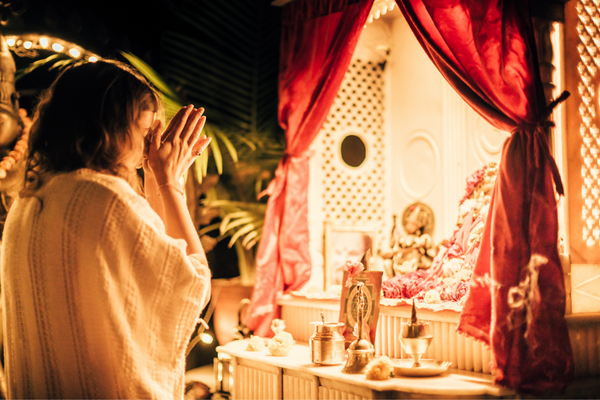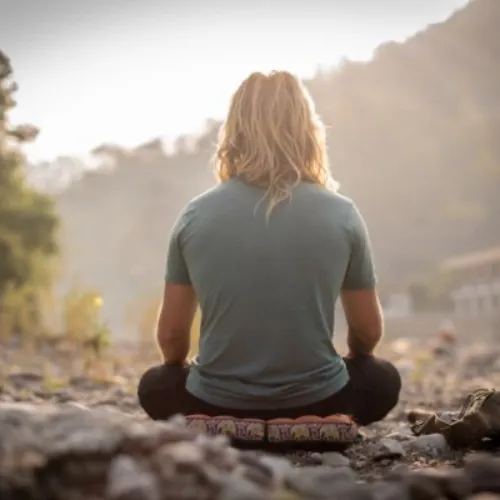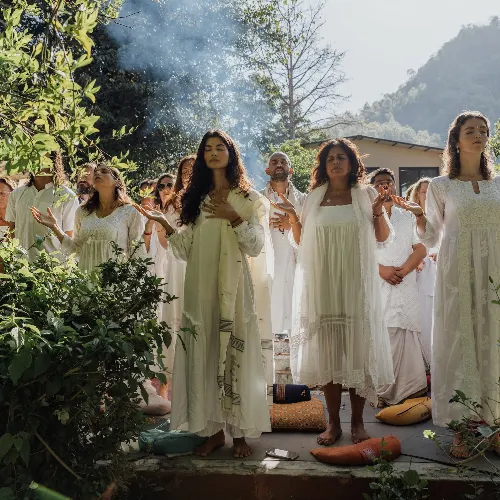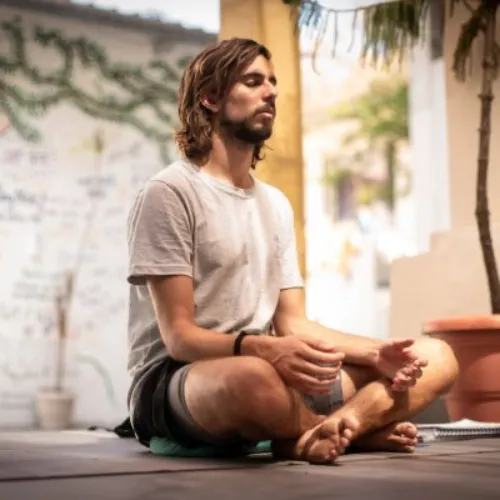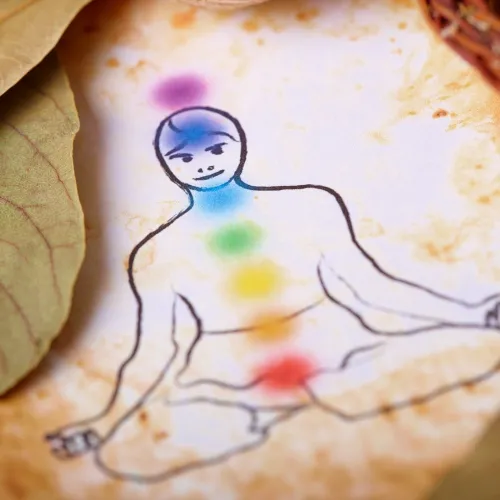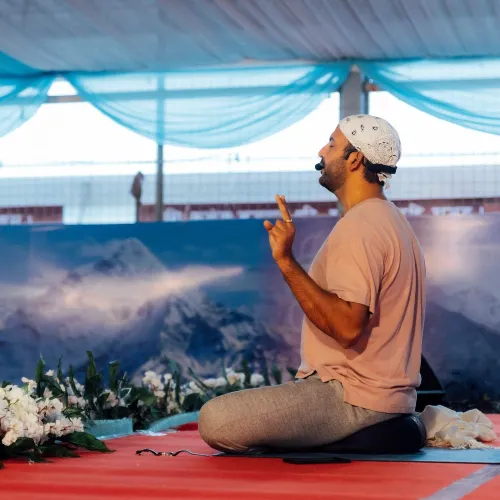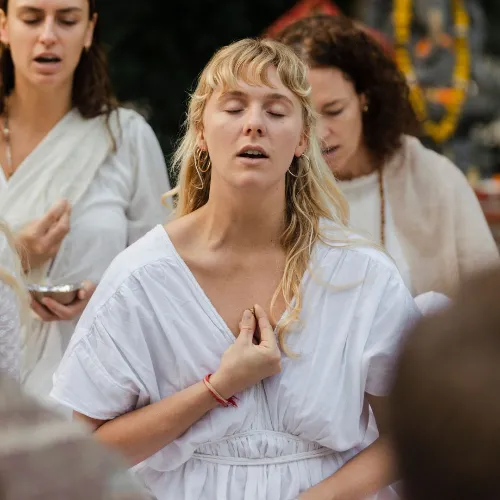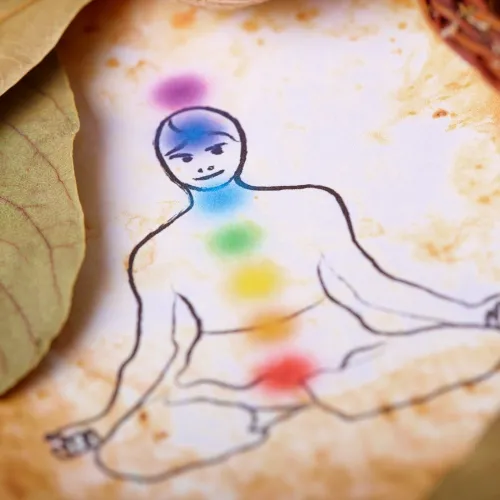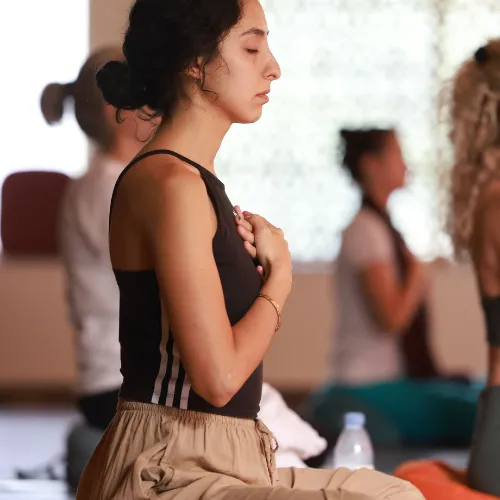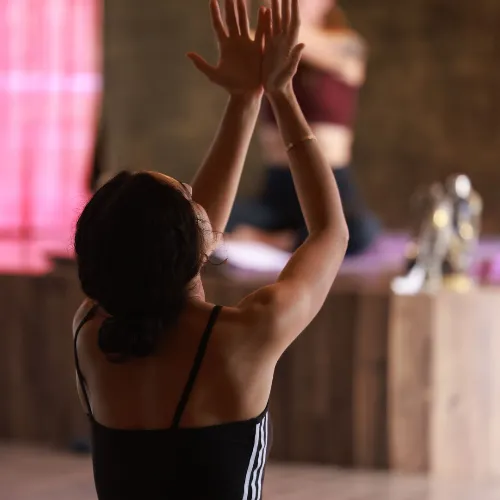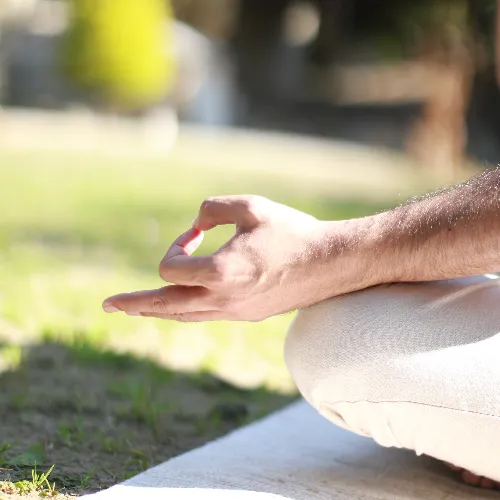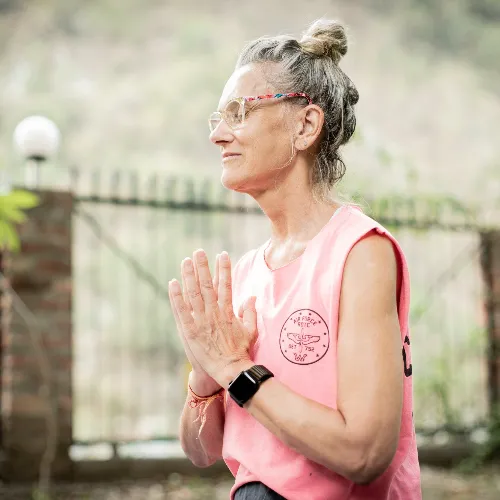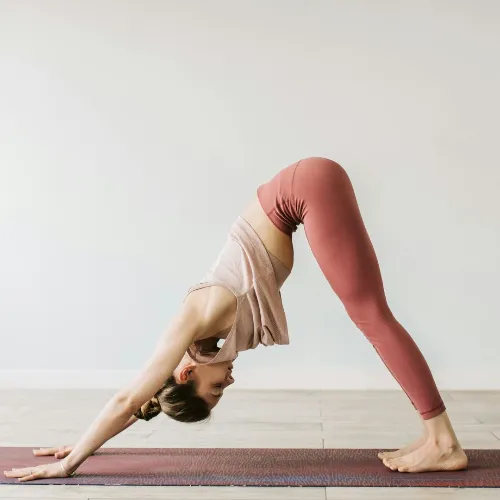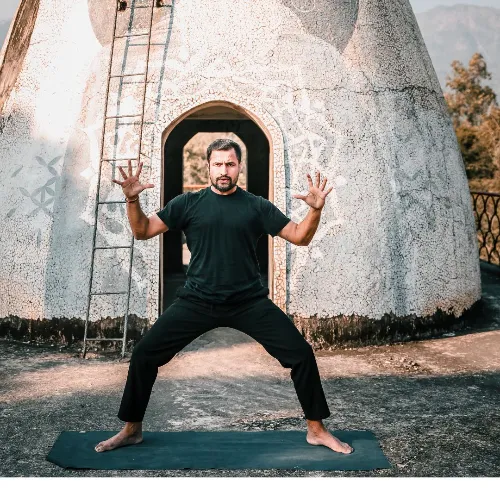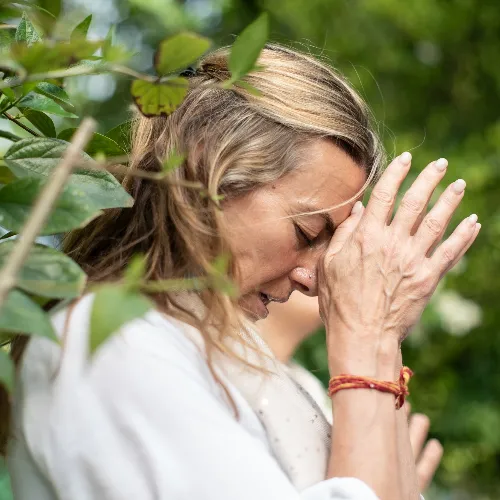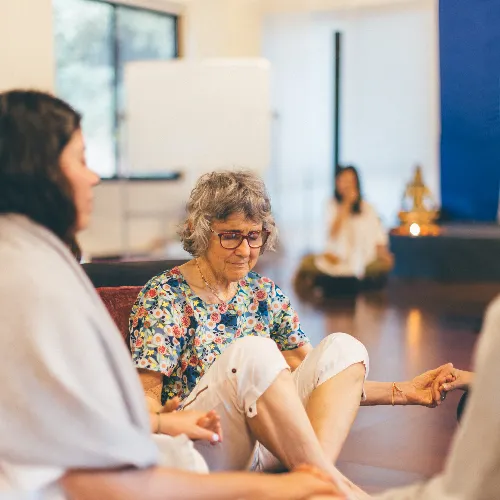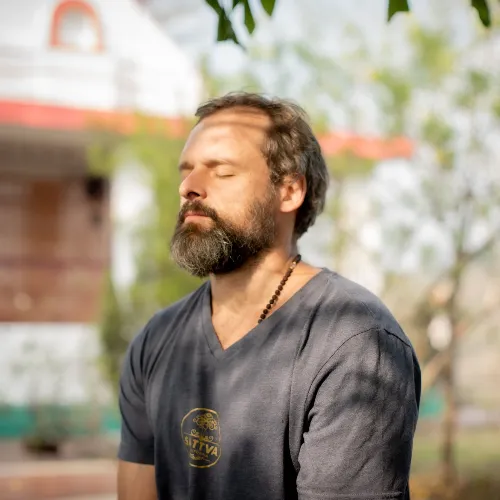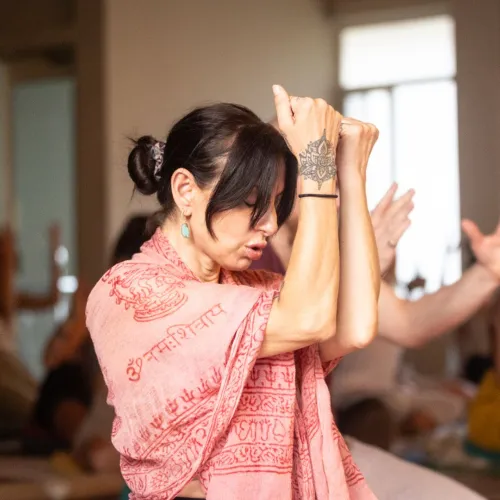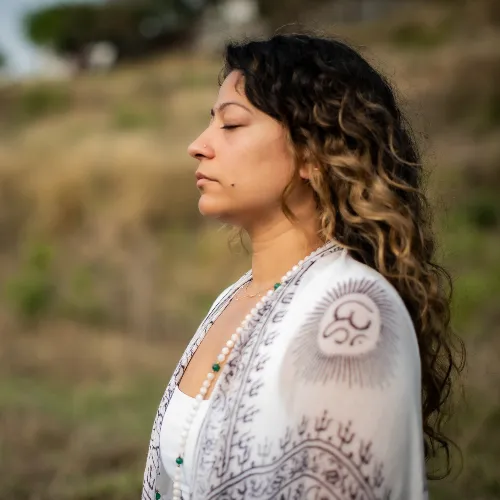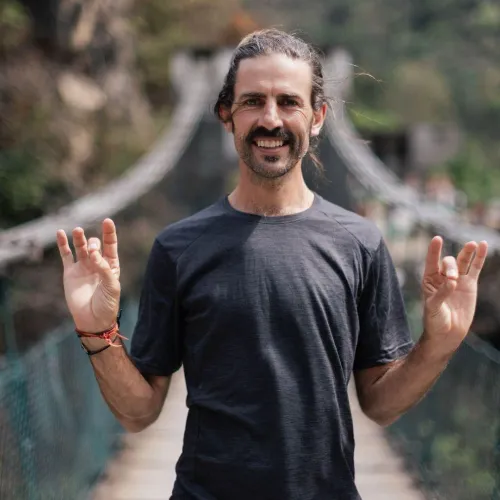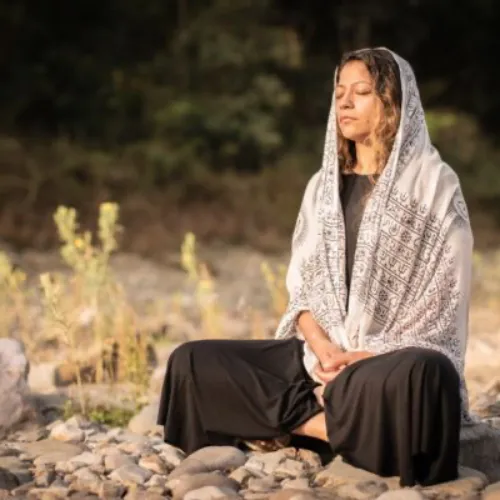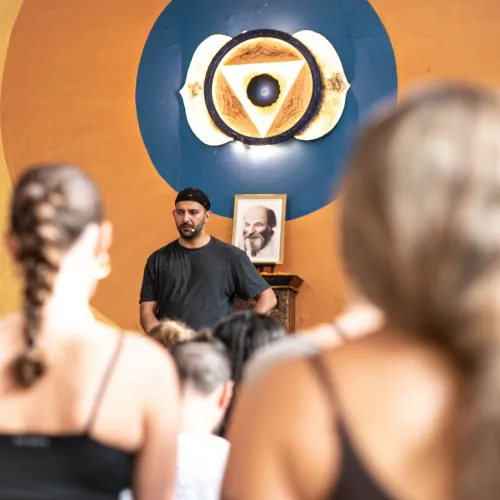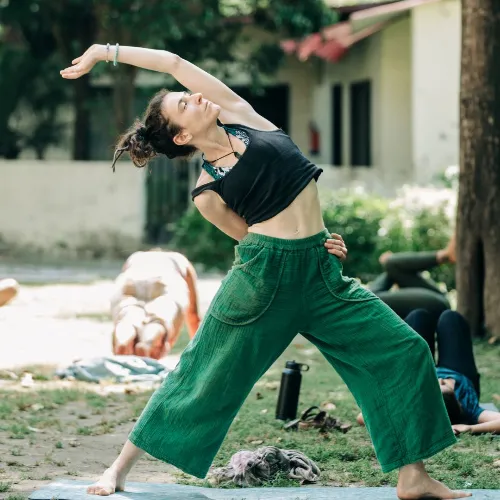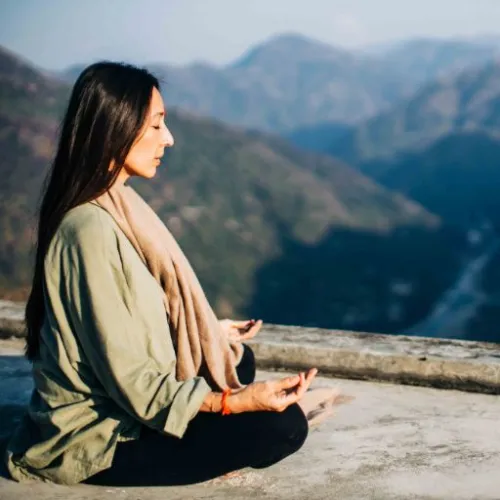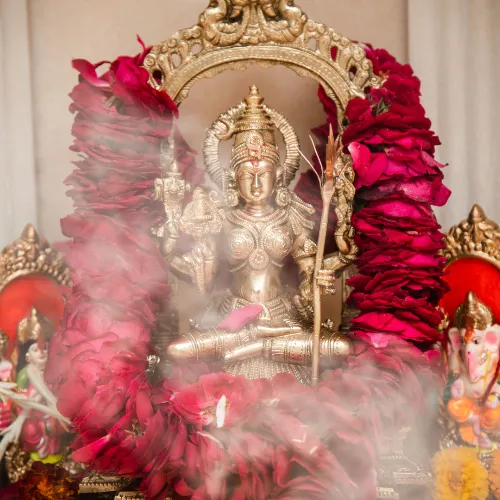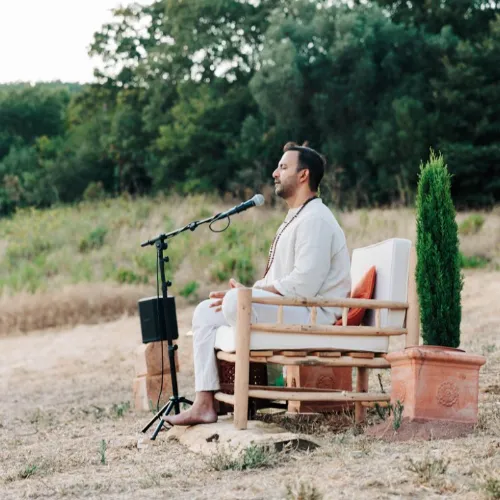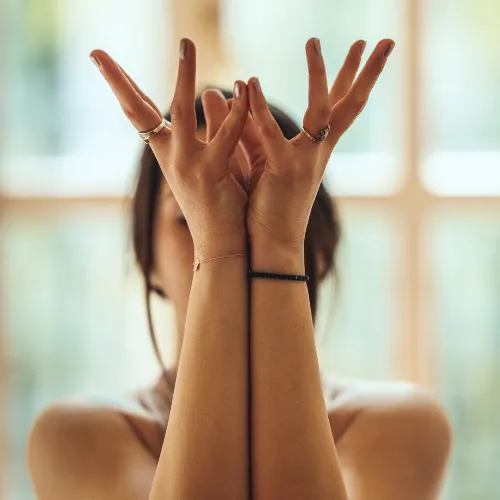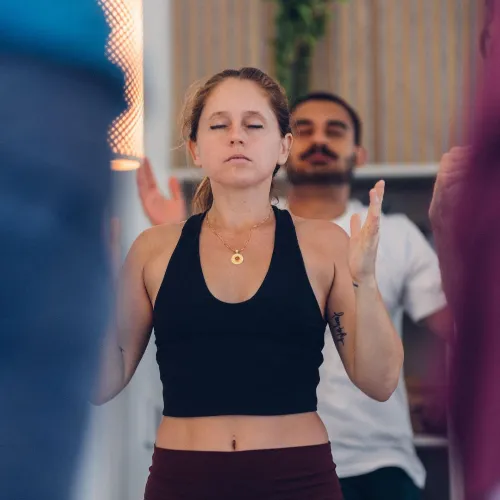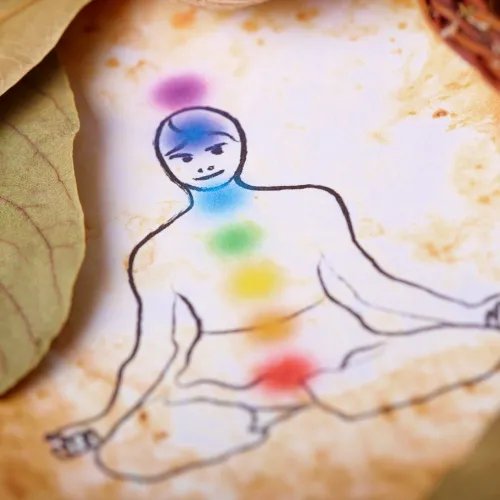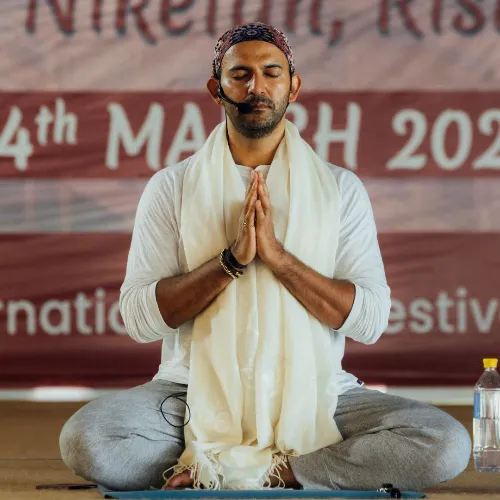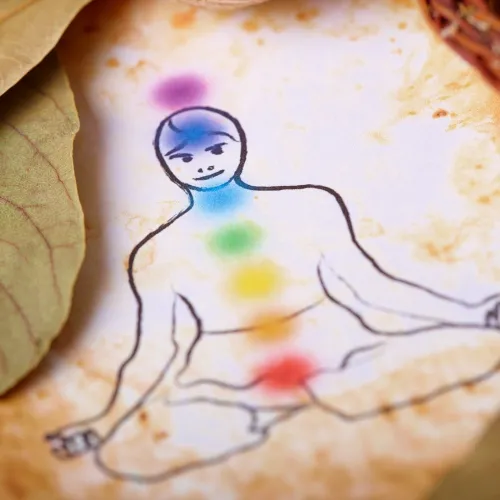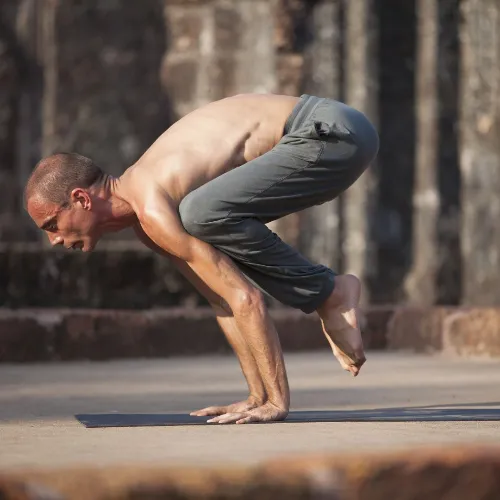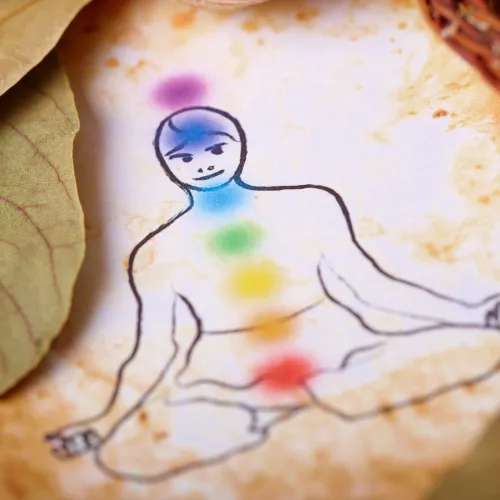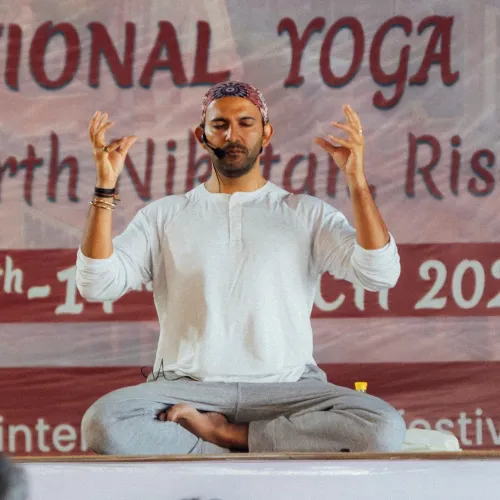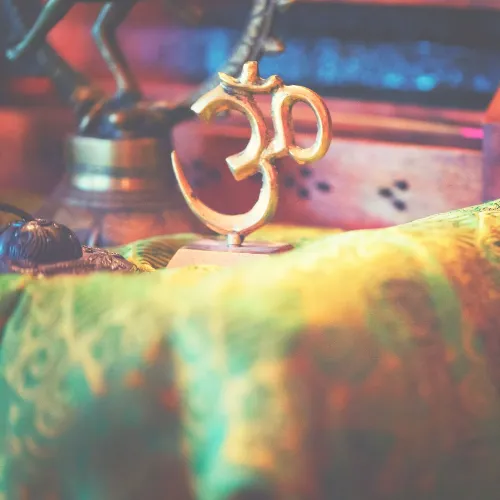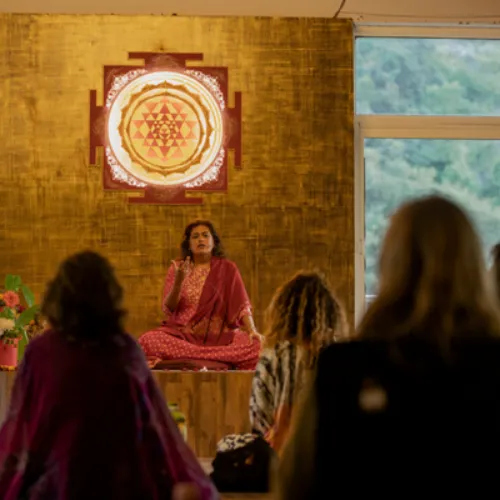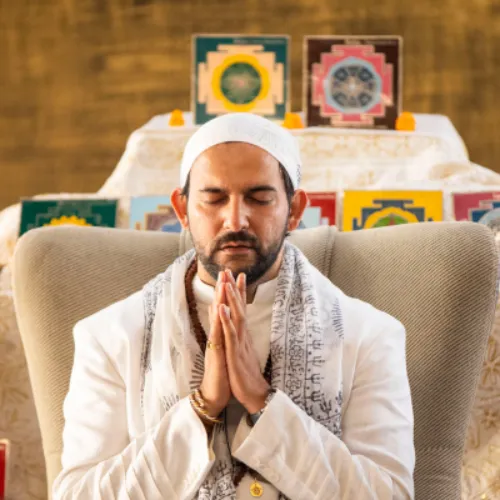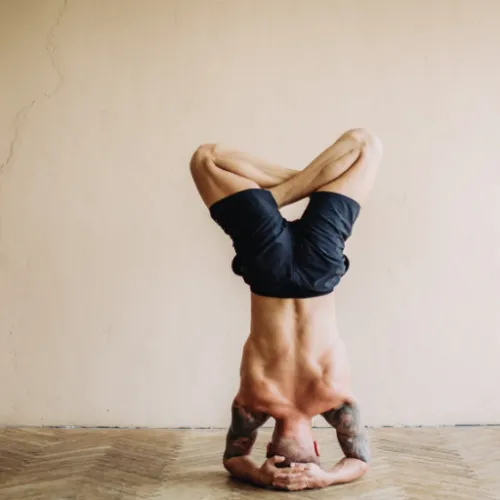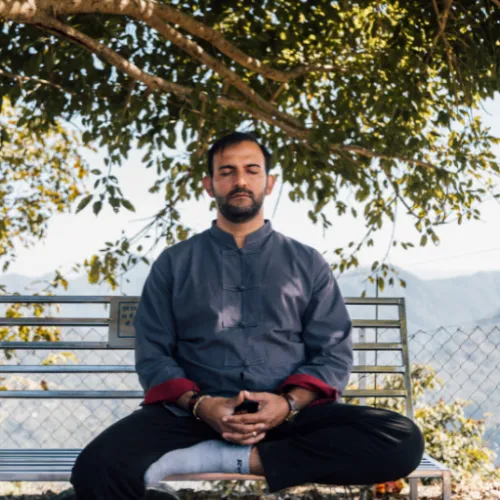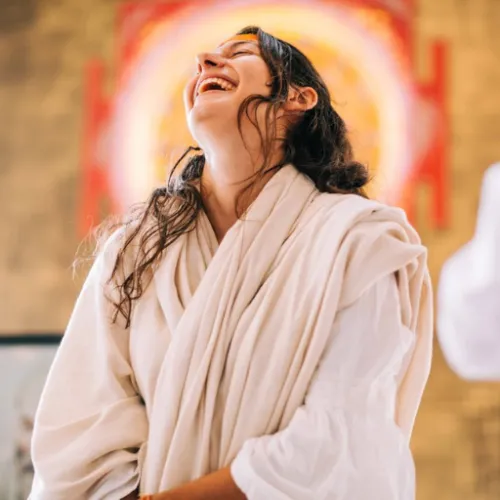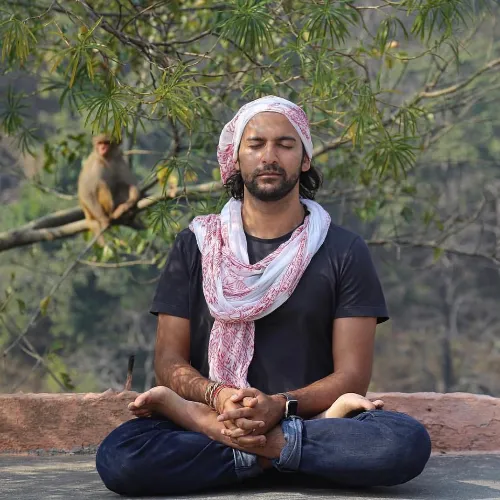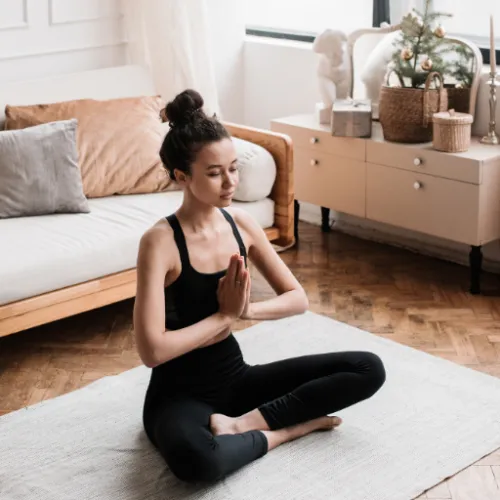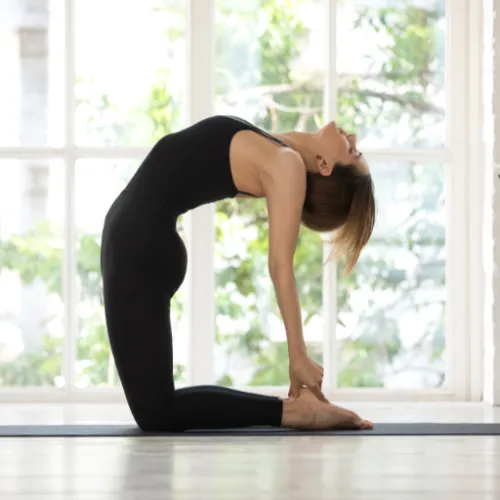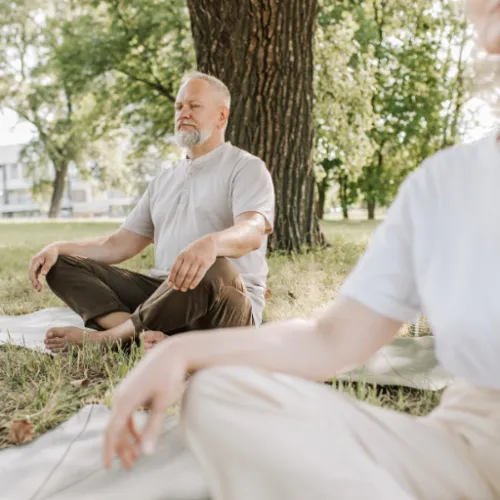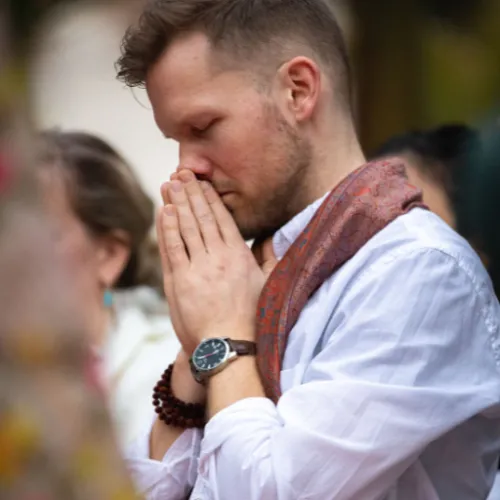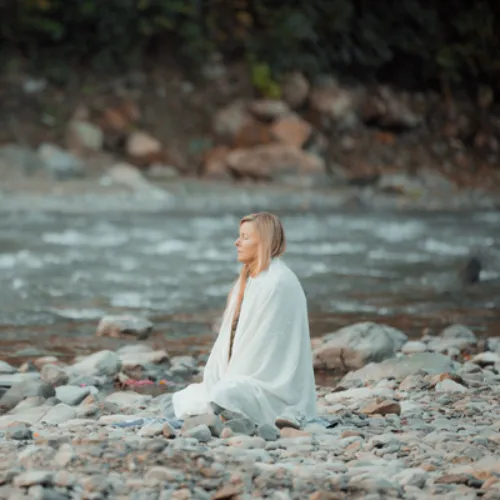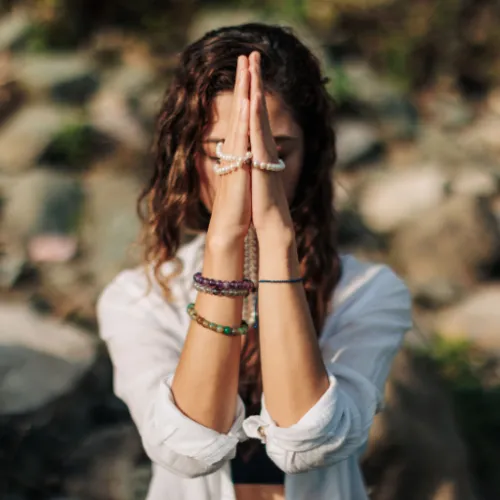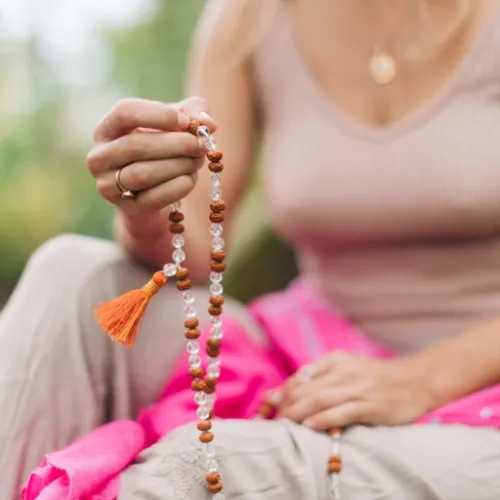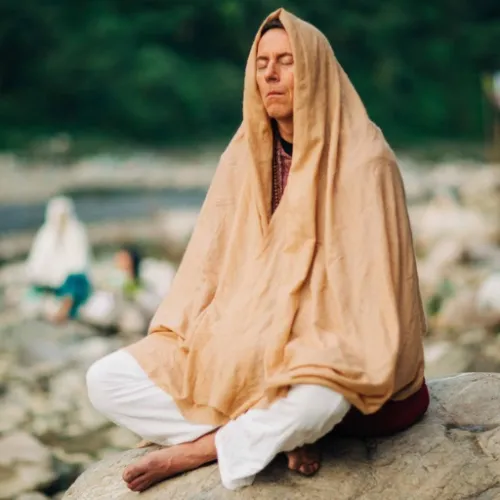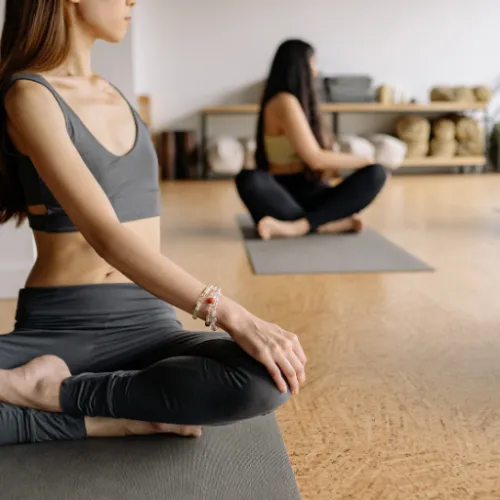

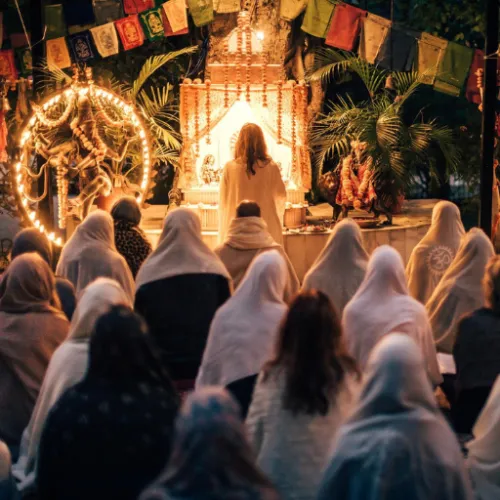
Humans are creatures of habit. If we don’t create conscious habits, we will continue with unconscious ones. Sacred rituals are mindful rituals to incorporate into your daily routine to replace rituals that are not mindful.
We come from the elements. We live through the elements. We are intimately connected with nature. If nature ceases to be, so will we. Yet we live so disconnected from it.
Sacred rituals help us to attune to specific frequencies, using sound, intention and the elements.
They bring us into the heart state, a highly receptive state, a state of love. They align us with the creative intelligence and get us out of the way of it.
They are about offering something to yourself as, when using the elements, you are tapping into your quantum body, into your body beyond your body.
It’s important to have a devotional practice first thing in the morning to start your day off with love and to allow the sacredness of existence to enter your life.
What is Puja (or Pooja)?
Puja is a sacred ritual that can be done every morning to assist in refining your consciousness state. It puts you in a state of receptivity, receptive to the presence of grace, because grace is ever-present. It gives incredible power as it supports us in connecting to the vertical love, the love that frees.
The practice of puja ignites a dharmic state, meaning the action does not have a reaction. It ignites freedom from the fruits of action. The one doing puja should be in a Shiva state of consciousness, practicing to the altar as it is a deep extension of one’s Self. Then nature responds in kind.
Creating Your Altar
Building an altar in your living space charges the house with positive energy and magnetism. When you enter that space, it will raise your awareness to that level. It’s important to treat the altar as an alive being, an extension of life, and, if possible, have either the altar, or you, facing east.
When you are offering to the Divine, you are invoking a personal relationship of loving presence, giving, offering back into existence. We always offer with the right hand and using a copper vessel for the water is ideal, as it brings in the sun’s energy.
A sacred ritual is a conscious action to invoke a desired response from nature and yoga is about you claiming the rituals back.
Pour the longing for love that you have into the universe through rituals as when we offer the love back, grace starts to flow. The universe responds to your heart, when your heart is in a humble place.
Puja is performed every morning at the Sattva Retreat in honour and celebration of the Divine Feminine. Join Annemarie, on Sattva Connect, to experience it for yourself. Cultivate that love affair with the Divine.
FAQs
Q1. What is Puja?
A: Puja is a sacred ritual that begins early in the morning to refine one’s state of consciousness. It cultivates devotion, receptivity, and love — helping one connect to the divine and begin the day aligned with grace.
Q2. What are the elements involved in performing Puja?
A: Key elements include having an altar (often facing east), using offerings (water, flowers, etc.), offering with the right hand, sometimes using a copper vessel, and treating the altar as a living extension of your being. Intention, devotion, and sound/intention with the elements are central.
Q3. How does Puja affect consciousness?
A: Performing Puja helps one enter a heart-centered state, where actions no longer carry reactive karma (“action does not have a reaction”). It fosters a Shiva-state of consciousness — a state of being the offering, being the conscience beyond ego — which allows nature (or reality) to respond in kind.
Q4. Can anyone practice Puja, even without a religious background?
A: Yes. Puja in this context is less about dogma and more about devotional ritual. Anyone can use it as a daily practice to cultivate mindfulness, love, connection, and awaken one’s inner devotional state.
Q5. What practical steps are suggested for starting a Puja ritual at home?
A: Some practical steps: build a small altar (facing east if possible), choose offerings like flowers or water, use your right hand for offering, use a copper vessel for water if accessible, set an intention, perform Puja first thing in the morning, and treat the altar with reverence as a living presence.
